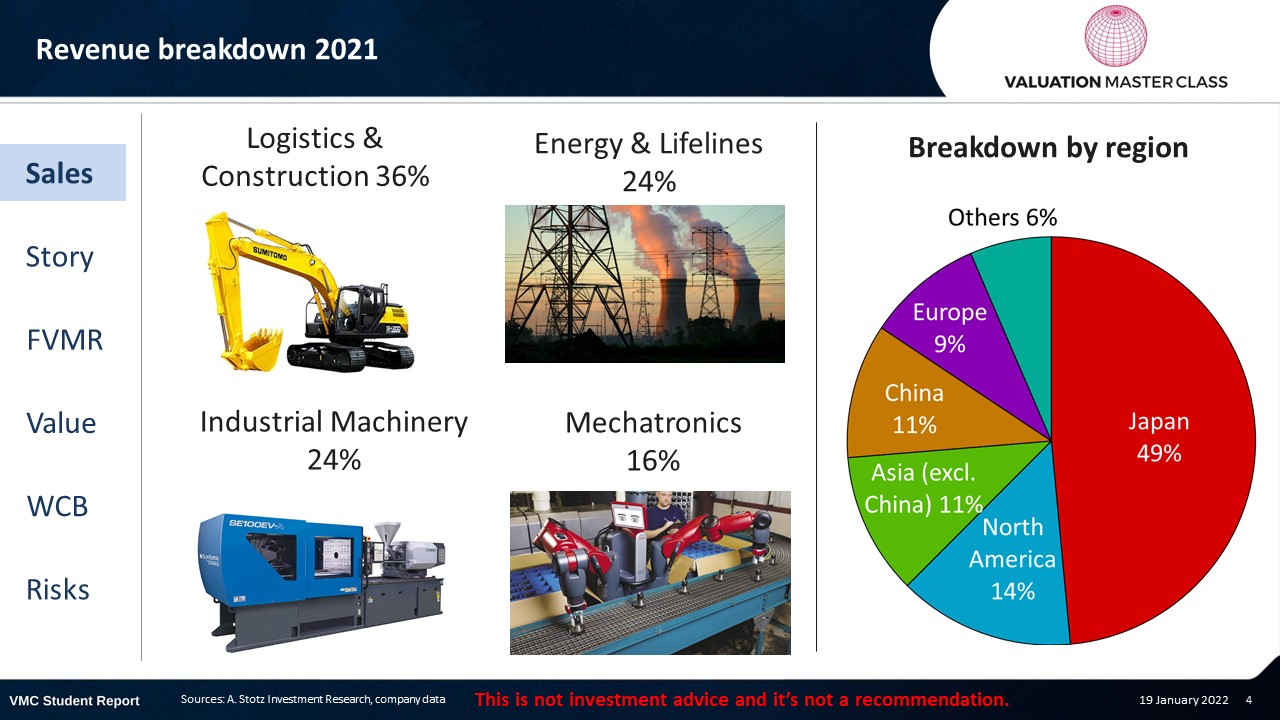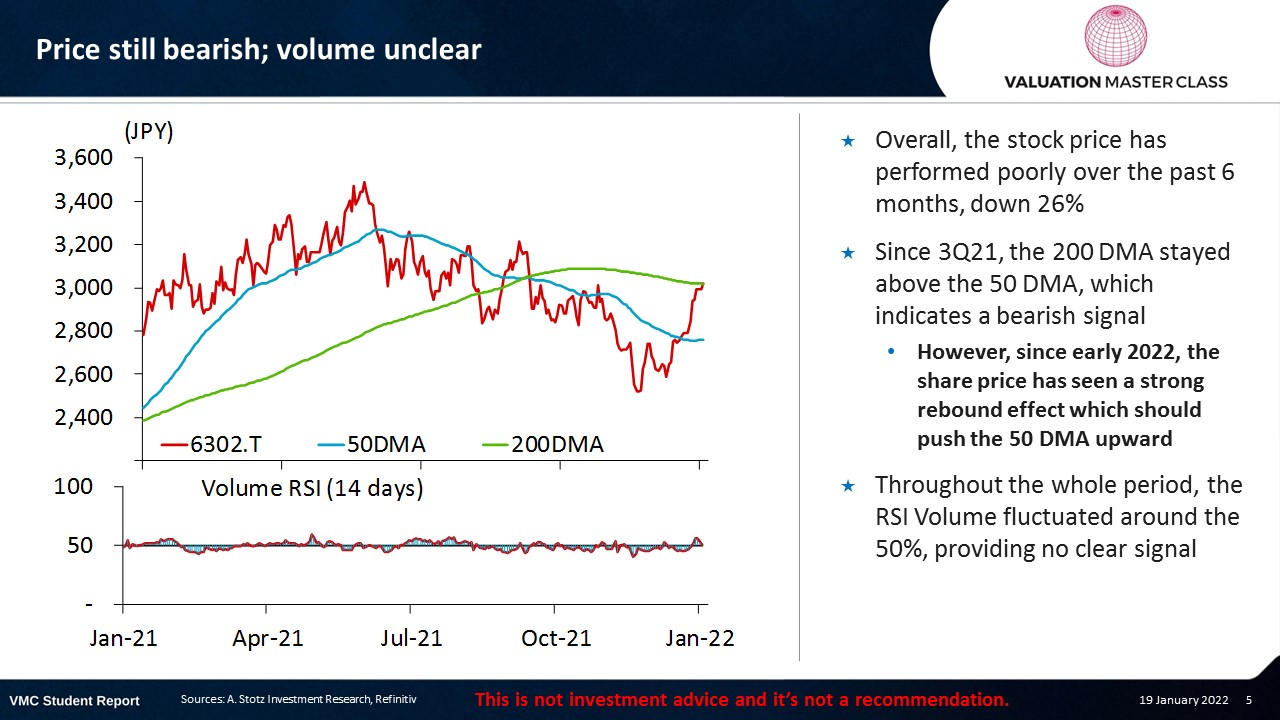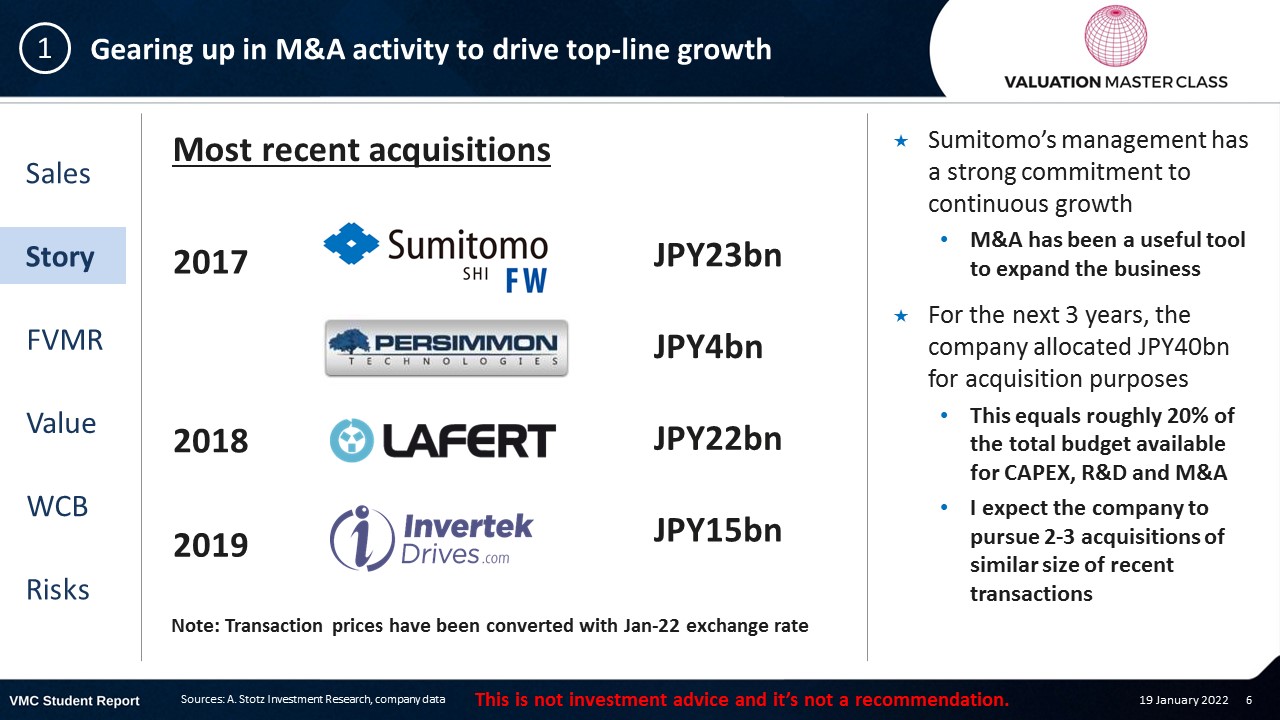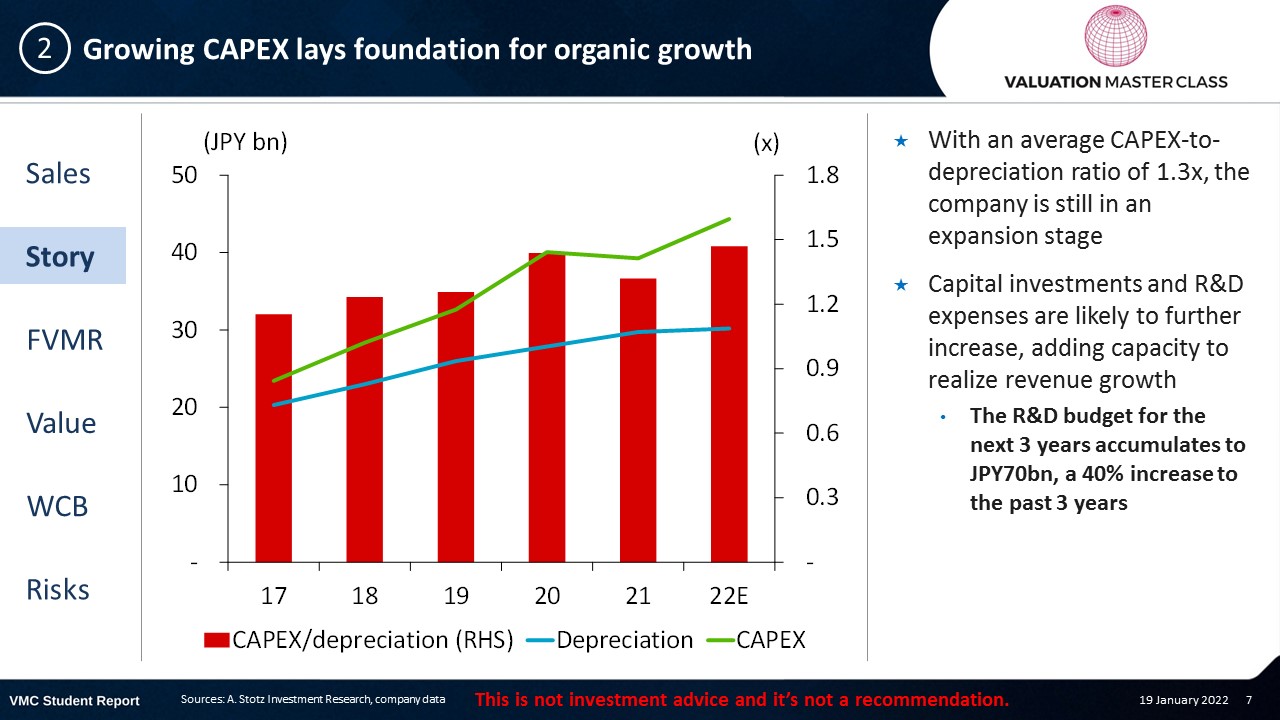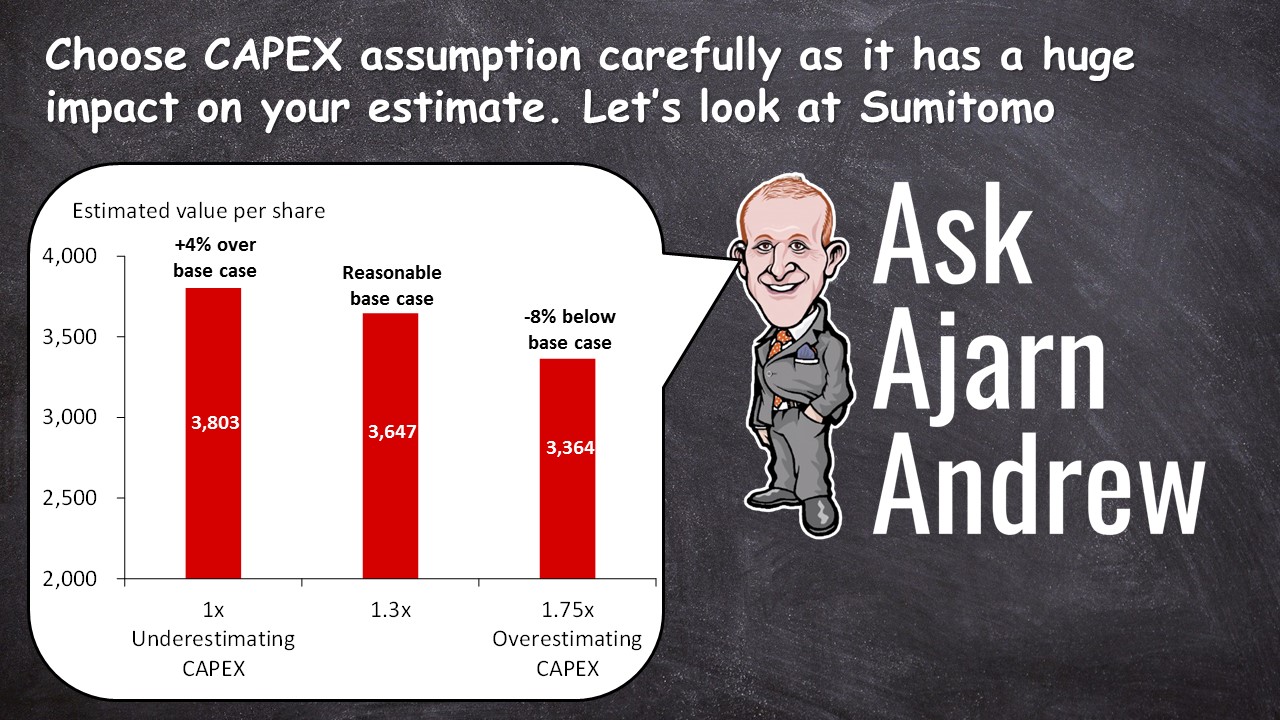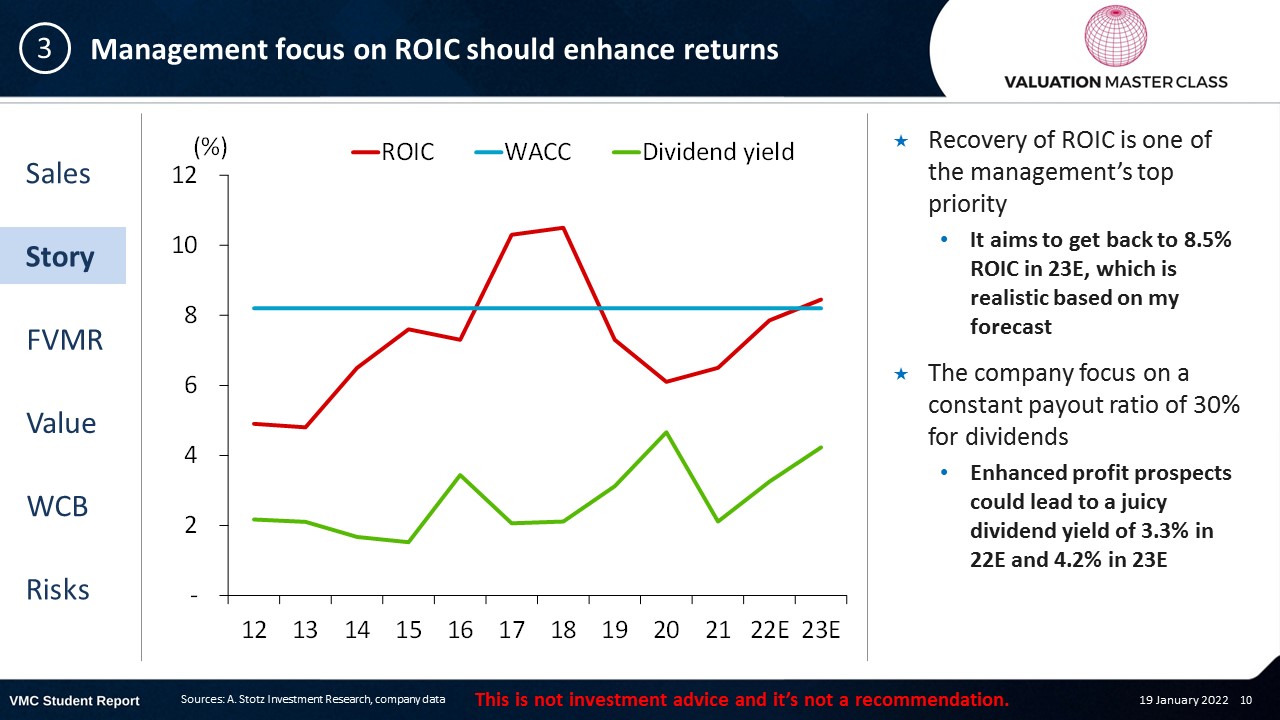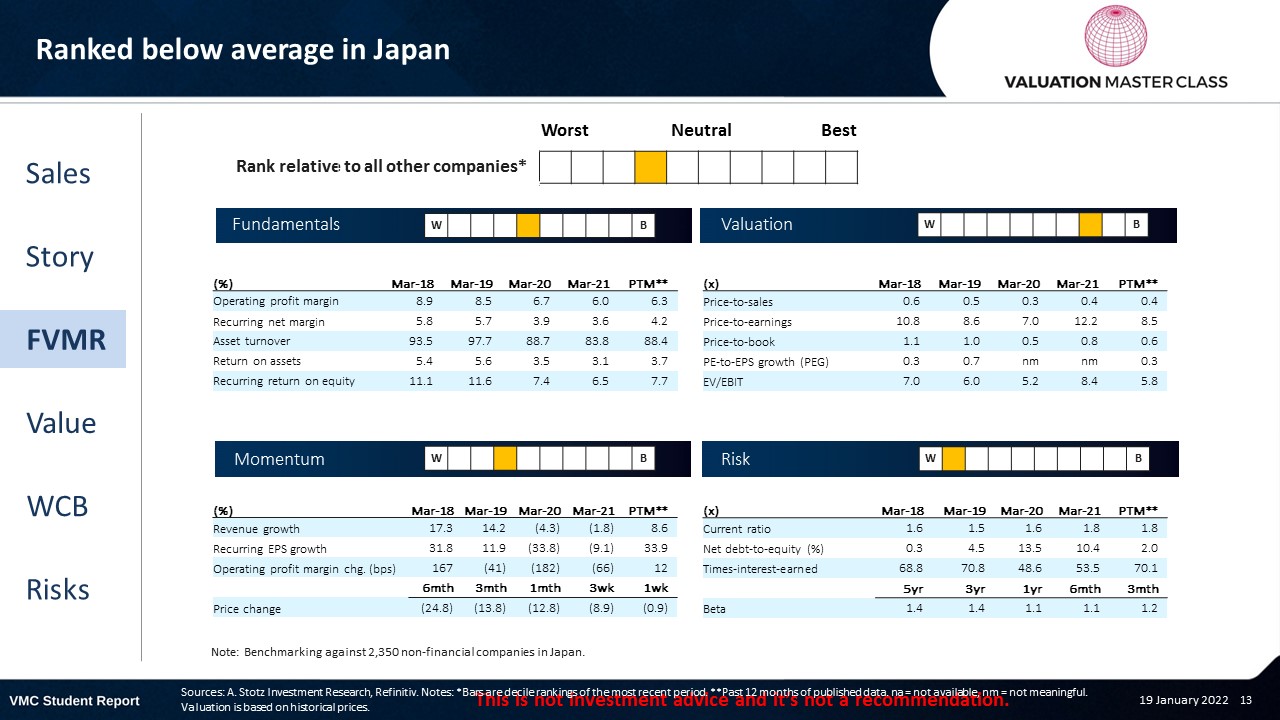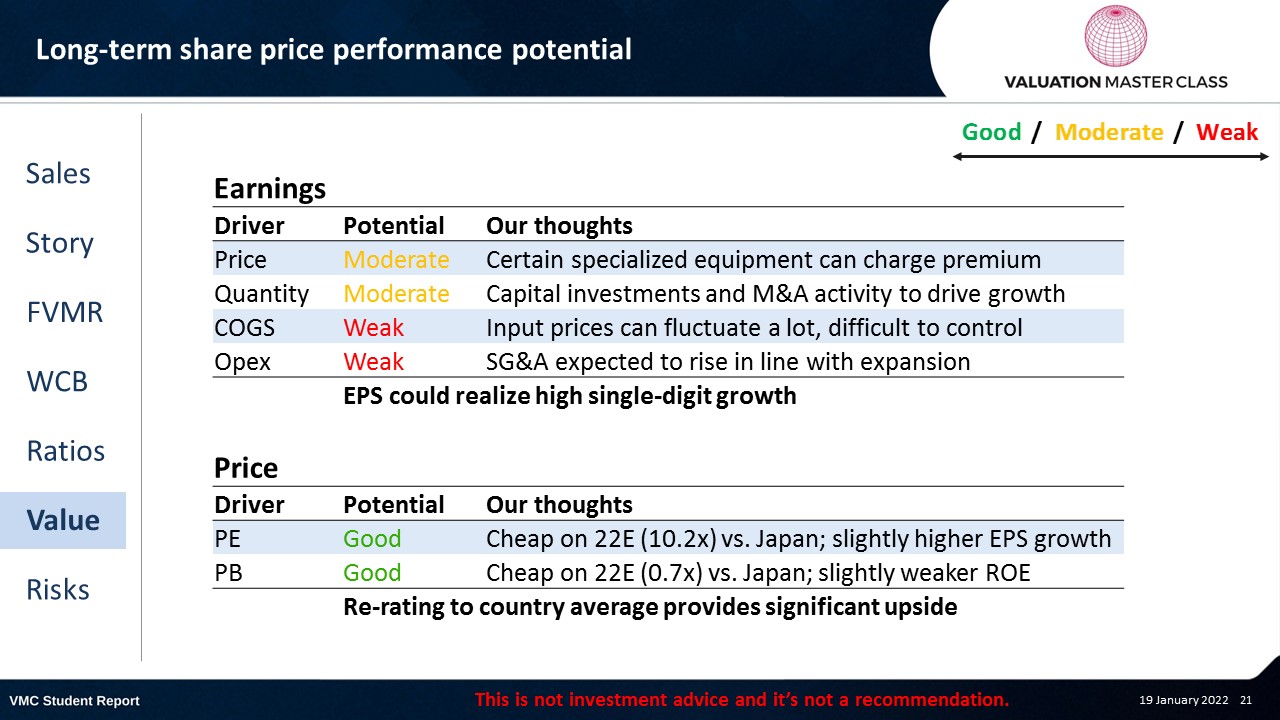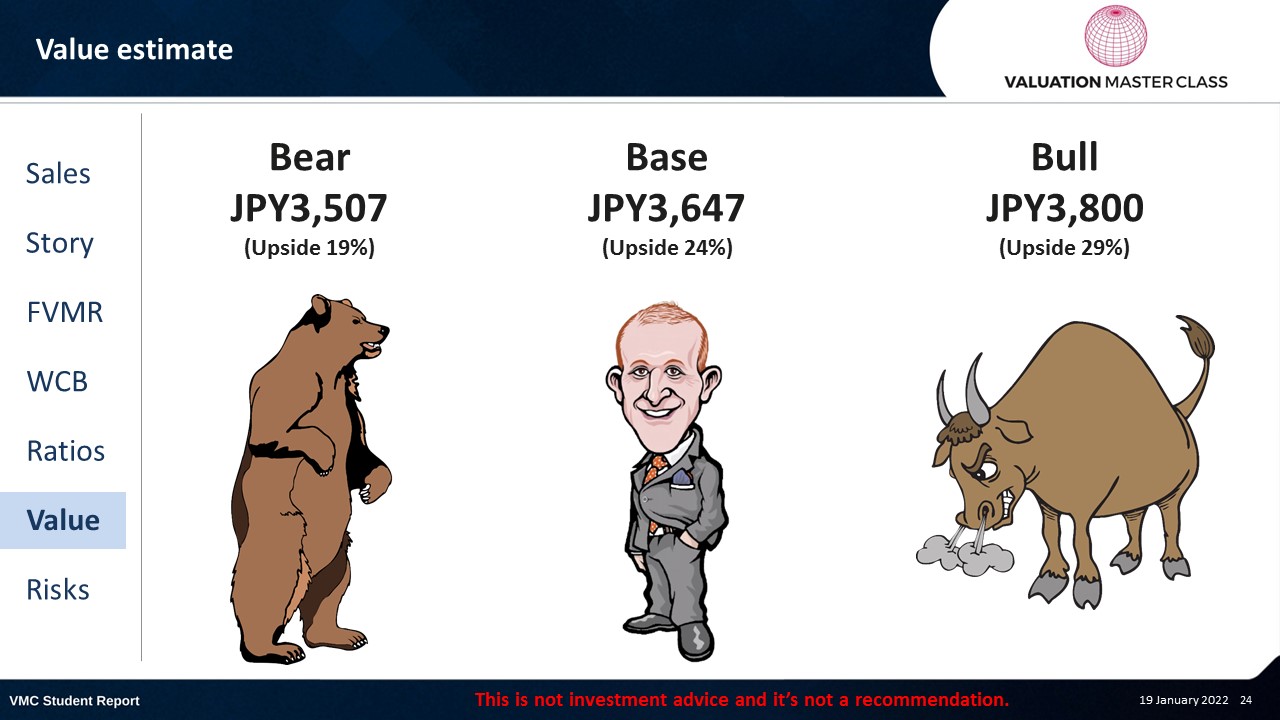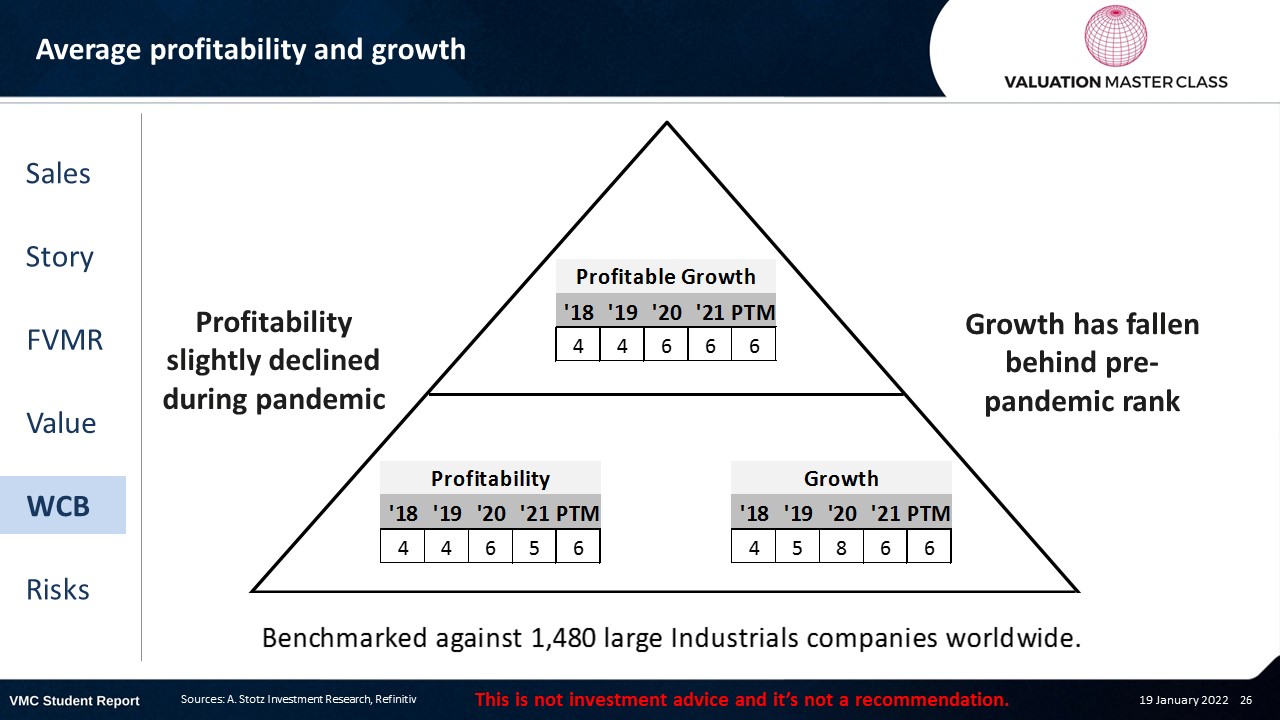The post was originally published here.

Highlights:
- Gearing up in M&A activity to drive top-line growth
- Growing CAPEX lays foundation for organic growth
- Management focus on ROIC should enhance returns
Q4 2021 hedge fund letters, conferences and more
Download the full report as a PDF
Sumitomo’s revenue breakdown 2021
Price still bearish; volume unclear
- Overall, the stock price has performed poorly over the past 6 months, down 26%
- Since 3Q21, the 200 DMA stayed above the 50 DMA, which indicates a bearish signal
- However, since early 2022, the share price has seen a strong rebound effect which should push the 50 DMA upward
- Throughout the whole period, the RSI Volume fluctuated around the 50%, providing no clear signal
Gearing up in M&A activity to drive top-line growth
- Sumitomo’s management has a strong commitment to continuous growth
- M&A has been a useful tool to expand the business
- For the next 3 years, the company allocated JPY40bn for acquisition purposes
- This equals roughly 20% of the total budget available for CAPEX, R&D and M&A
- I expect the company to pursue 2-3 acquisitions of similar size of recent transactions
Growing CAPEX lays foundation for organic growth
- With an average CAPEX-to-depreciation ratio of 1.3x, the company is still in an expansion stage
- Capital investments and R&D expenses are likely to further increase, adding capacity to realize revenue growth
- The R&D budget for the next 3 years accumulates to JPY70bn, a 40% increase to the past 3 years
What can the CAPEX-to-depreciation ratio tell us?
- Growth firms
- Capex should be more than the annual P&L depreciation charge, maybe around 150% of it
- Very high growth firms
- Capex could much more than 150% of depreciation
- Low or no growth firm
- Capex about equal to annual depreciation charge
- It mainly covers maintenance
Choose CAPEX assumption carefully as it has a huge impact on your estimate. Let’s look at Sumitomo
Management focus on ROIC should enhance returns
- Recovery of ROIC is one of the management’s top priority
- It aims to get back to 8.5% ROIC in 23E, which is realistic based on my forecast
- The company focus on a constant payout ratio of 30% for dividends
- Enhanced profit prospects could lead to a juicy dividend yield of 3.3% in 22E and 4.2% in 23E
FVMR Scorecard – Sumitomo
- A stock’s attractiveness relative to stocks in that country or region
- Attractiveness is based on four elements
- Fundamentals, Valuation, Momentum, and Risk (FVMR)
- Scale from 1 (Best) to 10 (Worst)
Most analysts still on hold, but see upside
- 3 analysts issued a BUY recommendation while 4 stay on HOLD for now
- Consensus expects two strong years in terms of revenue but no growth in 23E
- I think that the company’s strong commitment to growth could lead to a positive surprise in 23E
Get financial statements and assumptions in the full report
P&L – Sumitomo
- Sumitomo has a strong ability to drive growth organically and through M&A
- Also, its product portfolio is well-equipped to ride the demand rebound
Balance sheet – Sumitomo
- Sumitomo has high working cap requirements, more than 40% of its total assets
- LT-debt has tripled between 2019 and 2021
- I expect the company to slowly repay it given its strong cash generation ability
Ratios – Sumitomo
- Revenue has been resilient throughout the pandemic
- The company only recorded a drop of 4% in 2020 and 2% in 2021
- The company has low leverage and could turn net cash in the future
Long-term share price performance potential
Free cash flow – Sumitomo
- Cash flow should return positive from 22E onward
Value estimate – Sumitomo
- I am a bit more optimistic about the growth outlook
- Both, M&A and organic expansion should pay off in terms of revenue
- Sumitomo’s margin has been pretty stable over time
- Therefore, there is no reason to deviate significantly in the assumptions
World Class Benchmarking Scorecard – Sumitomo
- Identifies a company’s competitive position relative to global peers
- Combined, composite rank of profitability and growth, called “Profitable Growth”
- Scale from 1 (Best) to 10 (Worst)
Key risk is falling behind competitors in capturing rebound
- Acquisitions could drag margins when integration takes time
- Potential overinvestment in capital-intensive industry could be harmful
- Environmental pressure to develop sustainable machineries requires high R&D
Conclusions
- Past has shown management’s commitment to growth and enhancing ROIC
- Valuation appears cheap, could be a good opportunity to buy
- Attractive dividend yield adds additional return
Article by Andrew Stotz, Become A Better investor



